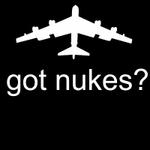@Fedaykin du enttäuscht mich maßlos, bei den andern kann man das ja noch unter Ahnungslosigkeit verbuchen, aber bei dir weiß ich genau, dass du mit Geopolitik vertraut bist und es besser weißt. schon traurig wenn du plötzlich, je nach Interessenlage, deine Expertise selber torpedierst. Du weißt genau, worauf Friedman seine Analysen stützt, welche Expertise Strafor besitzt, von wem es alles genutzt wird und wir oft die Einschätzungen genau zutreffen. Witzig, dass gerade Friedman schon 2009 den Konflikt in der Ukraine voraussah, und wenn sogar die bpb sich auf seine Expertise zurück greift, dann sagt das schon viel aus. Der gute Mann besitzt 100 mal mehr Expertise als wir alle zusammen, das ist wohl kaum zu bestreiten. Friedman ist vieles aber mit Sicherheit keiner, der ungeprüft Stellung zu aktuellen Sachverhalten nimmt. All das weißt du aber zu genau....
catman schrieb:ging ausserdem um die Camps für KIds
catman schrieb:da bin ich mir nicht so sicher







